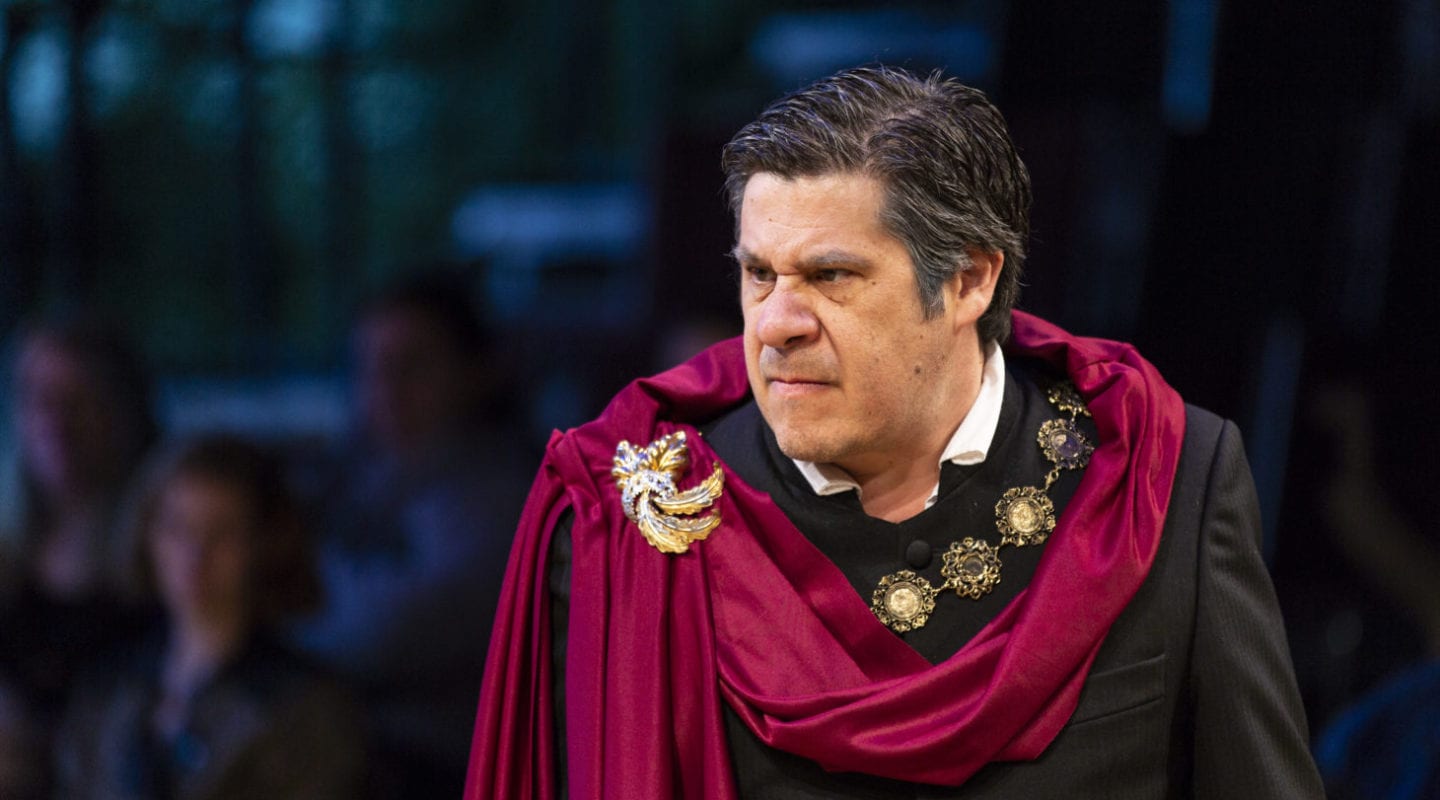Posted July 6, 2018
 Originally published on July 5, 2018 by Terry Teachout in The Wall Street Journal (“A New Twist On Shakespeare: Playing It Straight”).
Originally published on July 5, 2018 by Terry Teachout in The Wall Street Journal (“A New Twist On Shakespeare: Playing It Straight”).
Seven years ago, it was still inherently newsy when the Oregon Shakespeare Festival put on a “Julius Caesar” whose title role was played by a woman, Vilma Silva. Nowadays, though, gender-bending revivals of the classics have become all but commonplace, and what makes Davis McCallum’s Hudson Valley Shakespeare production of “ Richard II ” noteworthy is not that Julia Coffey has been cast as Shakespeare’s unhappy king, or even that her performance is so distinctive: it is, rather, Mr. McCallum’s staging. As crisp, legible and full of import as a well-written headline, his “Richard II” cuts straight to the heart of a play that has never been as popular as its historical companion pieces.
Why is “Richard II” not done more often? One reason for its lack of renown is that it is a play without a hero, a tragedy of mutually undesirable alternatives. Richard II, who puts his head in the noose of hubris by banishing Bolingbroke ( Mark Bedard ) without sufficient cause, is the ugliest kind of king, by turns smug and capricious—but Bolingbroke then unsheathes his own ugliness by usurping his legitimate ruler and placing himself on the throne. What gives the play its dynamism is that both men, under pressure, find their better selves, and the quality of Mr. McCallum’s production lies in the clarity with which it demonstrates this aspect of power in action.
Ms. Coffey, who first came to my attention when she appeared in Mr. McCallum’s 2014 Mint Theater revival of John Van Druten’s “London Wall,” is at home with both aspects of Richard II’s cloven personality, pivoting from arrogance to desperation so smoothly as to suggest that both qualities are opposite sides of the same coin of character. Mr. Bedard’s bald, bullet-headed Bolingbroke, by contrast, is all of a piece, tough and incisive in his iron determination to revenge himself. They are the two poles between which the other characters in this production array themselves, and their excellence makes everyone else shine even more brightly. Mr. McCallum works his usual visual wonders—no director in America is more adept at moving around a big cast—and Gabriel Kahane’s incidental music, all sounding brass and clamorous drums, sets just the right tone for the proceedings.



